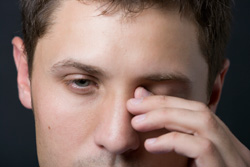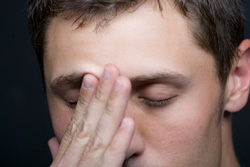Fatigue and the GA pilot
<BR cmid="Article:Two Deck"><SPAN class=twodeck cmid="Article:Two Deck">Fatigue remains a top flight hazard</SPAN>
 Fatigue would seem one of the easiest hazards for pilots to avoid—but it has proven one of the most difficult. Even multi-crew airliners with mandated rest periods have succumbed to fatigue in accidents over the years. And general aviation pilots face myriad business and personal stresses that can tire us out, mentally and physically, and harm our performance in the cockpit.
Fatigue would seem one of the easiest hazards for pilots to avoid—but it has proven one of the most difficult. Even multi-crew airliners with mandated rest periods have succumbed to fatigue in accidents over the years. And general aviation pilots face myriad business and personal stresses that can tire us out, mentally and physically, and harm our performance in the cockpit.
Fatigue-related accidents reach far beyond aviation, too. Disasters at Chernobyl and Three Mile Island nuclear facilities, the loss of space shuttle Challenger, and the Exxon Valdez oil spill all were affected by fatigue, according to official reports.
So what can GA pilots do to avoid fatigue and improve flight safety? Here are a few tricks collected from a variety of GA pilots:
- Recognize the hazards of insufficient rest, and take them seriously.
- Observe warning signs such as forgetfulness and foolish errors that show a lack of mental acuity.
- Make realistic schedules that avoid situations (such as a late-night flights after long and harried business days) where fatigue is likely to become a factor.
- Prepare in advance of each trip by getting proper rest, nutrition, and hydration—and avoid the energy sapping after-effects of late nights, alcohol, or long periods of strenuous physical activity.
- Reduce fatigue-inducing noise exposure by having a good headset with effective ear seals.
- Avoid flying at high altitudes in unpressurized airplanes or high cabin altitudes when tired.
- Stay properly hydrated during flight.
- Use oxygen at relatively low altitudes, even if not required by regulation.
- Even short pre-flight rests can be helpful. Earplugs and eye shades can help pilots seeking 20-minute cat naps.
- Regard fatigue as a legitimate reason to cancel or reschedule flights.
 Toughing it out won’t make fatigue go away, and tiredness, preoccupation, or distraction aren’t moral failings. Pilots should regard their bodies and minds as sensitive tools requiring proper upkeep. And even though there’s no objective, scientific way to measure fatigue, pilots should know that even highly trained, professional crews with vast experience have made foolish, in-flight errors as a result of exhaustion.
Toughing it out won’t make fatigue go away, and tiredness, preoccupation, or distraction aren’t moral failings. Pilots should regard their bodies and minds as sensitive tools requiring proper upkeep. And even though there’s no objective, scientific way to measure fatigue, pilots should know that even highly trained, professional crews with vast experience have made foolish, in-flight errors as a result of exhaustion.
For more information about the effects of fatigue—and ways to keep it from catching up with you in the cockpit— check out the new “Fighting Fatigue” Safety Brief from the AOPA Air Safety Foundation and this subject report from AOPA’s Pilot Information Center.

